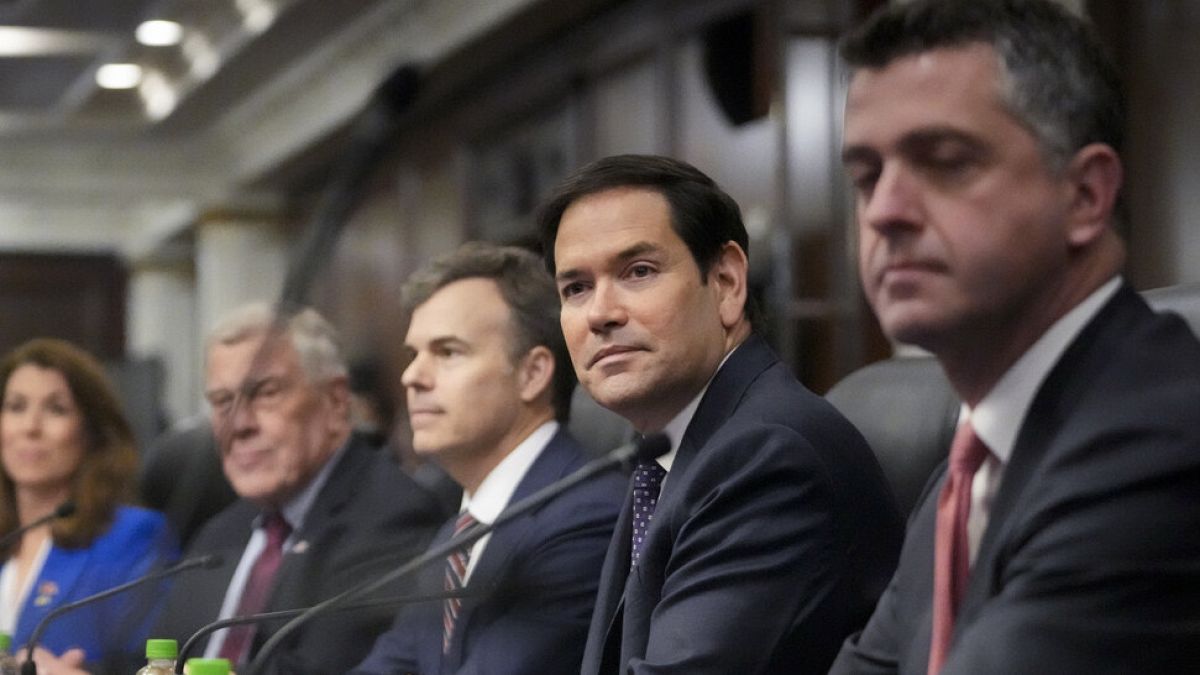
US Secretary of State Marco Rubio has warned Panamanian leader José Raúl Mulino that his country could face potential retaliation from Washington unless it reduces what US President Donald Trump considers to be China’s influence over the Panama Canal.
On his first foreign trip as the top US diplomat, Rubio held talks on Sunday with Mulino, who has resistedpressure from the Trump administration over management of a waterway that is vital to global trade.
Mulino described his meeting with Rubio as “respectful” and “positive”, stating that Rubio made “no real threat of retaking the canal or the use of force”.
Rubio told Mulino that Trump believed that China’s presence in the canal area may violate a treaty that led the US to hand over the waterway to Panama in 1999. That treaty calls for the permanent neutrality of the US-built canal.
“Secretary Rubio made clear that this status quo is unacceptable and that absent immediate changes, it would require the United States to take measures necessary to protect its rights under the treaty,” the US State Department said in a summary of the meeting.
Mulino said that he did not “feel like there’s a real threat against the treaty and its validity”.
Panama’s president did announce that his government would not renew its participation in China’s Belt and Road Initiative once its current agreement expires.
The initiative, which funds infrastructure projects worldwide, has been criticised for saddling developing nations with heavy debt to China.
Rubio later toured the canal at sunset with its administrator, Ricaurte Vásquez, who has said the waterway will remain in Panama’s hands and open to all countries.
The US diplomat’s visit came amid heightened concerns over China’s influence on global trade routes. He warned last week that Chinese-run port facilities at both ends of the canal make the waterway vulnerable to political pressure from Beijing.
“[Trump] has been pretty clear he wants to administer the canal again,” Rubio said on Thursday. “Obviously, the Panamanians are not big fans of that idea. That message has been brought very clear.”
Despite Mulino’s firm stance that Panama will not negotiate over ownership, speculation persists that the government might consider a compromise — potentially removing the Hong Kong-based Hutchison Ports company from managing canal operations.
The firm was granted a 25-year no-bid extension to oversee operations, but an ongoing audit could lead to a rebidding process.
It remains uncertain whether Trump would be satisfied with transferring operations to a US or European company, or whether his administration seeks broader control over canal management.
North Korea condemns Rubio’s remarks
In a separate development, North Korea issued its first direct criticism of the Trump administration on Monday, denouncing Rubio’s description of the country as a “rogue” state.
“The hostile words and deeds of the person who is in charge of the US foreign policy served as an occasion of confirming once again the US hostile policy toward the DPRK (Democratic People’s Republic of Korea) which remains unchanged,” North Korea’s foreign ministry said.
“Rubio’s coarse and nonsensical remarks only show directly the incorrect view of the new US administration on the DPRK and will never help promote the US interests as he wishes,” it added.
The statement appeared to reference Rubio’s remarks on The Megyn Kelly Show on 30 January, where he referred to North Korea and Iran as “rogue states” while discussing foreign policy priorities.
- Trump says he won’t rule out military force to try to take control of the Panama Canal and Greenland
- Does China operate the Panama Canal? Trump’s inauguration speech fact-checked
While the US has long characterised North Korea as a rogue nation, Pyongyang’s reaction suggests it will maintain a confrontational stance towards Washington despite Trump’s recent overtures to North Korean leader Kim Jong-un.
During a Fox News interview on 23 January, Trump called Kim “a smart guy” and indicated his willingness to re-engage in diplomacy.
“I will, yeah,” Trump said when asked whether he would reach out to Kim again.





